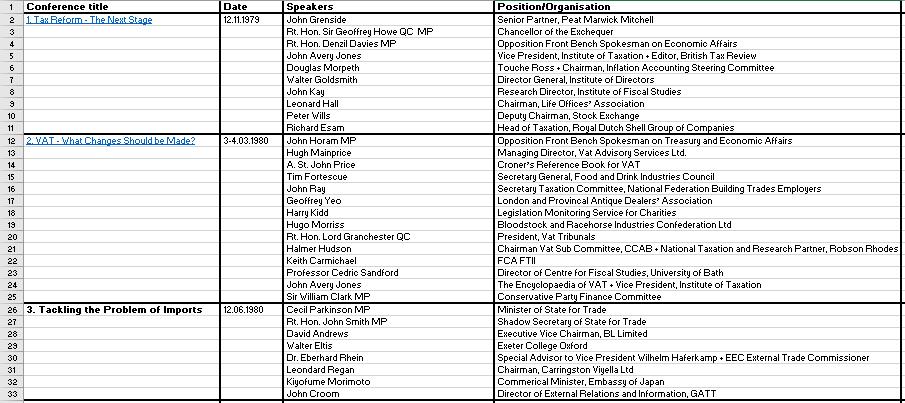Plato’s Socrates once said that “true knowledge exists in knowing that you know nothing”. Much later, Bertrand Russell said something much to the same effect. But surely the fallacy of their statements is that to say that these guys actually knew quite a lot is really quite an understatement. Regardless of this fallacy, a fallacy of course which misses the real point of the statements, it was a useful motto to live by during the first couple of days of my Undergraduate Research Scholarship. I, perhaps like the people that Plato and Russell unsheathed their pens to attack (or whatever Plato used), thought I knew quite a lot about the period of British history stretching from 1979 through to 2005; but as many find out, it turned out I knew relatively little. I was shocked to discover the huge diversity of topics and issues that were debated, written about and legislated on during a period which is often written off as one concerned with the infamous pillars of Thatcherism: deregulation, privatisation, monetarism, and the ‘rolling back of the state’. In conferences primarily attended by practitioners from the City of London, there were discussions of the European Union, the National Health Service and Information Technology, as well as ones concerning the topics listed above.
My main task during the scholarship was to catalogue and organise the Douglas French Archive, under the guidance of Nick Crowson and Matthew Francis. This task was incredibly daunting since I only had 5 weeks to take 55 boxes full of conference folders, papers and brochures, to organise them according to conference, and within the conference, by speaker, and then to catalogue all 349 conferences as well as their speakers onto a huge spreadsheet. In my mind it was a task clearly comparable to Thatcher tackling the power of the unions or to Blair removing Clause 4 from Labour’s constitution; except much, much more difficult. Despite some jitters early on in the scholarship, I am very proud to say that the Douglas French Archive is now a workable and navigable archive, available to use in the Cadbury Research Library, and that if all goes well, I will be using the archive in my dissertation this year.

I would wholeheartedly recommend the archive to anyone interested in modern British history, mainly because it is fantastically organised, but also because of the small fact that there is a wealth of previously unseen material on a wide variety of topics. It is mainly concerned with economic issues, but there are interesting and important insights into the culture of the City and the transformation of it during this period. An interesting thing I noted is the lunch menus changed from being written in French during the 1980s and 1990s, to being written in English, as far as I’m aware, in the early 2000s. Lamb, potatoes and green beans sounds much, much posher in French than it does in Anglais, believe me.
Furthermore, I would wholeheartedly recommend the UGRS programme. Not only has the programme offered me opportunities to understand the nature of research and the research process in much greater detail, but the programme has also opened doors into the nature of postgraduate research, and has made me want to explore that avenue even more than I did beforehand. Moreover, my experience of working with my academic leads as an equal, and them trusting me to take control over the direction of the project has greatly augmented my confidence and independence, thus preparing me for future studies. I’d like to thank them, as well as all the staff in the Cadbury Research Library for all the help they provided, and for making me feel so welcome.
I am really grateful for the opportunity the UGRS provided me, and the potential avenues my completion of the project has now opened up. Whereas I spent last summer cleaning Freshers’ toilets and dirty rooms, I spent this summer increasing my knowledge, improving my skills and indeed, more fully understanding what Socrates and Russell had to say.
John Tibbits, BA History and Political Science
